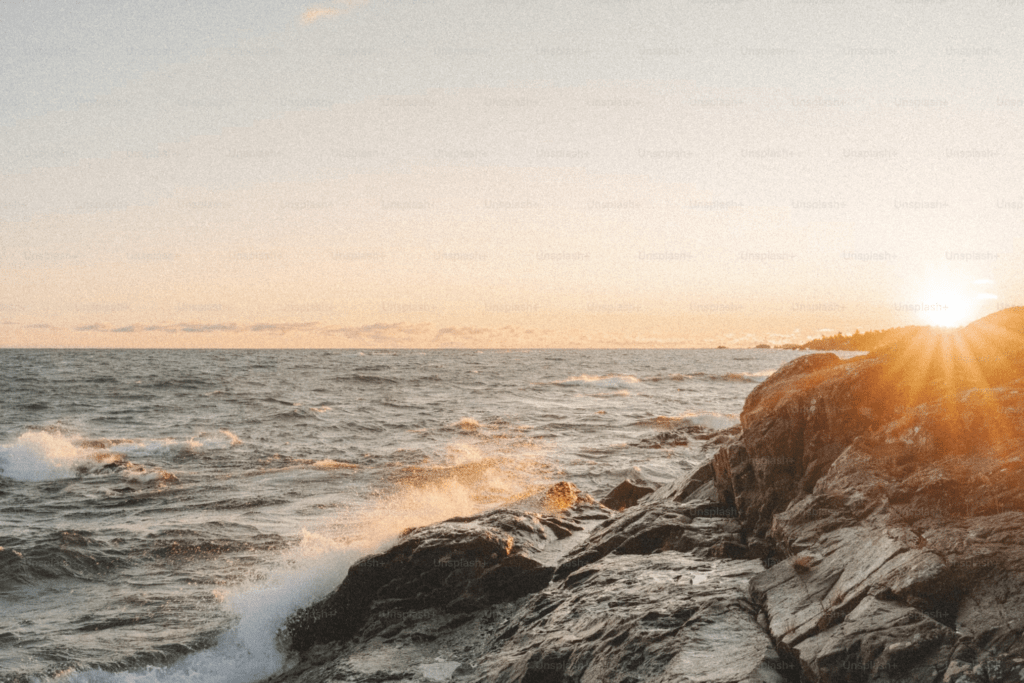Country of Origin: United States of America
Trigger Warning: Violence
Approaching the coast of the North Carolina Outer Banks, Ray slowed the sailboat to a stop, reeled in the sails with the main halyard, and tossed the anchor overboard. The wind rushed around the hull of the Corsair, causing the sails to waver madly. It raced past him as well, picking at his clothes and hair, blowing in his ears, and making goosebumps rise on his skin. His hair was already a windswept nest from the trip over and liable to tempt the coastline birds or evil seagulls.
Arching his neck, Ray scanned the swiftly darkening sky. The sun was already halfway hidden in the never-ending ocean line, so the sky was lit with an array of pinks, purples, and oranges. Cirrus clouds slowly drifted in the sky, their shapes whisked out as if something had blown them apart and dragged them along the sky. The sun highlighted their edges, contrasting against the shadows above so that the beams of light clearly showed against the sky’s background. The wispy clouds meant he should have good weather, perfect for his overnight exertion. The temperature slowly cooled as the sun set, so Ray put on his jacket, zipping it up with hardly a thought.
Glancing back at where he had come from, searching for the familiar stretch of Ocracoke Island, Ray couldn’t even spot the beacon from the white lighthouse. He was surrounded by water, and the only thing keeping him from getting lost was the compass on his boat and the orange buoy in the water. Much like his boat, the bright orange device bobbed in the small waves rocking along the sides. It was a gentle push, something so comfortable and familiar that Ray wanted to just lay down and pull a blanket over himself.
While some people enjoy camping, Ray loved sleeping as the waves rocked his craft. He’d been a surfer in his earlier years, from when he was just a kid until he had an accident when he was 27. Another surfer had gotten too close, and when he dodged out of the way, his board slipped from under him and he hit a rock just under the surface of the water.
“It was lucky you didn’t pass out and drown. Even losing that much blood could kill if not treated in time,” his doctor told him. This statement had been seconded by the numerous other physicians he’d visited. Over and over, whenever he brought up his chances of surfing again, he heard the same thing until he’d finally accepted that his time was over. His knee had been in terrible condition, and he lost a lot of blood because the rock tore up his joint so severely. The surgery helped restore mobility, but surfing was too much of a risk when his knee could give out, and his motor control was shot.
He misses watching the rise of waves and the thrill of anticipation more than anything. Sleeping in the boat always brought back dreams of surfing, even if it was just memories replaying nostalgically. Nothing could compare to being in control and gliding perfectly through a big wave. Yet, the sound of the crashing waves gave him a feeling of belonging and peace.

The sun’s light quickly started to fade as it dipped behind the horizon, but the full moon rose higher and provided enough light to keep Ray from sitting in absolute darkness. Ray leaned back against the cushioned seat, combing through his wind-crazed blond hair with his hand, watching the sun vanish with a sense of peace he could never get in a crowded city.
Above him, stars twinkled into existence, blooming in the sky by the dozens. Even from his boat, who knows how many light years away, Ray could swear he saw each star’s light shifting. The stars would dim and then grow, making a sea of stars as active in movement as the ocean was with its waves. This – this was what Ray loved. Ray let himself bask in the beauty of the world, just focusing on the salty tinge in the air, the brush of wind, and the open world in front of him.
For the past few centuries, since the colonies, if he remembered correctly, his family had never even left Ocracoke. His parents and grandparents were the same, visiting the sea in their free time or taking on a profession involving extended time on the water. Even his sister, Leah, who loved working as a genealogist, couldn’t stay away from the sea for too long.
Ray’s inherent love for the sea is apparent from the first time they bring him to the beach. The memory of salty air, the sand between his tiny toes, and water slipping through his equally tiny four-year-old hands. Losing the ability to surf was a personal loss, a knife to his chest and something he experienced as depression-like shackles that attempted to tie him to the land. He found respite working as a marine engineer and naval architect when he’d learned that working on boat designs or checking the performance of various vessels lifted the weight a little. Spending time on the beach was nice too, although he didn’t appreciate crowds of people, and the beach was more of a small strip of sand, anyway. So, he worked and invested in his Corsair Sprint 750, rather than a house or other luxuries.

Tonight happened to be a full moon. Ray could squint and make out some of the craters on the surface. It reminded him of his mother, who always used to tell him and Leah the same bedtime story every full moon when they were kids. It had been a long time since he’d thought about it, but he remembered it as clear as day. He had it memorized, and in his mother’s voice no less.
“The Flaming Ship of Ocracoke,” many called it. Its legend was centered around the ship’s captain and his crew who killed the German protestants aboard, who were fleeing the religious wars in England. Traders, craftsmen, poor and rich alike. The crew found their riches and later slaughtered them all. They took the lifeboats and set the ship on fire to destroy any evidence of their crime. Distracted by their victory and loot, they were late to see the burning ship chasing them. They heard the screams and moans of pain of the ghosts of those they had killed before they were hit and swallowed beneath the waves. They say that on every new moon, every year during September, the ship can be seen far out still traveling northeast, trying to find a destination for those aboard.
Ray remembered the legend whispered at his family bonfires and cookouts.
Pulling on his jacket, Ray grabbed the blankets to prepare his makeshift bed on the seat cushions rather down in the snug cabin in the bow.
Ray also switched on the lights required for boats at night. They caused the stars to dim a little, but it was worth it so that he wouldn’t alert any unwanted attention from the harbor patrol. Ray wouldn’t give up one of his joys in life with such a simple mistake.
The sky was completely dark now, all blues and grays to emphasize the moon and stars. The clouds were almost invisible, and the temperature had steadily dropped to a cool 65 degrees – according to his boat’s readings. As Ray pondered whether to pull out his phone, read a book, or take a nap, a bright light burst to life in the corner of his eye.
Ray’s head snapped up, half-expecting to see patrols. Instead, he was confronted with a burning, old-style boat. It was a giant, three-master ship with sails larger than Ray’s Corsair Sprint. It was entirely wooden, nothing like the boats today, and it felt like Ray was looking at a piece of living history. He sprang to his feet, walking over to lean against the side of his boat, half on top of the fold-out platform floats, watching the ship with wide eyes.
The phantom ship engulfed in flames glided silently toward him. Despite the enormous fire on the deck and the mast of the ship, there was no sound. Not even the telltale crackle of flames consuming the wood.
Ray’s heartbeat was insanely loud as it filled up the silence, thrumming inside his body like it would burst. Frozen in place, he was too afraid to move his boat because…maybe they would chase him like they did the greedy man who killed them.
What could Ray possibly do? His boat might be faster since it was engine-powered, but wouldn’t that just piss off the ghosts or something? The legend was said to have happened around the 1700s. How strong could the lingering hatred of the spirits be?
The giant ship approached, slightly angled so that they might just brush past each other. Even as it got closer, there was no temperature increase from the flames, no flying ash, no nothing. Nothing until a small, quiet whisper. It was too quiet to understand at first, but it repeated, and Ray could only guess that it was German. It was a throaty sound, but soft, like a child speaking. Ray threw his arms up in surrender, stumbling back a few steps to show he had no weapons or bad intentions. His arms were shakier than a newborn foal’s legs.
Although there was no ash, the scent of burning wood filled the air. Along with it, a weird smell of beef or pork and a charcoal-like scent Ray couldn’t identify filled his nostrils. He didn’t know what it was, but he could guess, and he didn’t want to think about it. He stood there, helpless under the star-blanketed sky, vulnerable on the gently rocking waves. Helpless, but mystified.
From all the legends, the stories, and the gossip, he’d never heard of the ship approaching so close to someone’s boat. It was only ever seen from a distance. Maybe it recognized Ray since he’d spent a good four years just sitting and enjoying the ocean, oblivious to it until now.
The ship slipped past harmlessly, missing Ray’s boat by mere inches. It was sailing slowly as though the person steering had all the time in the world—Ray supposed they did. The ship should have caused a wake to appear, but not even a ripple upset the calm rocking of his boat.
For a second, Ray believed he could see four distinct figures in the fire. Two were short and tiny, wavering in the heat given off by the flames. The heat he couldn’t feel, he amended. Two taller figures stood by them, and from the position of their bodies, they were looking in his direction. Ray gulped as he could feel the weight of those unseen gazes. Amazingly, the tinier forms waved at him, flickering like smoke forced into human shapes.
The shadows flickered again, and suddenly Ray could see the figures clearly. He could even distinguish the simple, old-style dress and silver necklace that the mother wore, the smoking cigar in the father’s hand, and the smiles on the two children’s faces. They were a painfully familiar sight. Their family portrait came to mind, the image saved for hundreds of years and recently scanned into the files of their family history in the cloud drive somewhere.
He whispered their names without thinking. His ancestors. No one but his family knew their names, nor would they know. No one except Ray himself and them — the present staring into the past.
He may have remembered the legend, but he had completely forgotten that several of his ancestors had been on that ship. Ray automatically lifted his hand and waved back to the tiny figures. It was awkward, out of habit, and he felt guilty for forgetting, but otherwise, his mind was filled with little more than static. The smiles of the two grew, their figures coming together and fading back into the fire. As much as he searched through the bright flames, nothing more appeared. As the ship continued to sail past, Ray noticed something floating in the water near his boat.
Peering over the side, Ray saw several pieces of silver jewelry floating in the water around him. Silver should not float, yet the necklace easily remained close to the surface, tantalizingly within reach. Looking back to the ship slowly fading away, the edges of sails and wood becoming hazy like it was all just an illusion, Ray ignored the shining treasures, seeing them as little more than traps intended for the greedy. He turned around just in time to watch the boat shimmer like a mirage in the desert before it vanished.
Ray sat there, stunned, in shock, and remembered something else his mother had said before. “Don’t forget them, Ray. We may have never met them, but they’re still family. If our ancestors weren’t separated into different ships when they were leaving England, we wouldn’t exist. History exists for us to remember.”
He had forgotten. It almost felt like a betrayal to his mother’s memory to forget. No wonder Leah was so obsessed with genealogy; she never wanted to forget, and she wanted to learn more. All forgot their ancestors’ names but his family because no records of the ship existed, like many others since it wasn’t uncommon in the 1700s for ships to not be logged, or for the sinking of a ship to not be recorded because of pirates or mainland scavengers. If one of the crewmates had escaped the ship and somehow survived, maybe they were the ones who destroyed the records to hide that they had killed the refugees.
Ray sat, staring into the distance where the ship vanished for a long while. He wouldn’t forget again, not this part of his history or any other.
Thank you to Kacper Janusz and Tom Foster for their inspired edit on this piece and everyone else on the Fiction team.
If you are interested in submitting a piece to the DG Sentinel, please visit our submissions page here.














5 Comments
Daphne
Thank you for this lushly evocative story about long-ago refugees and their enduring link to today⚓
MusicBig
[url=http://www.youtube.com/watch?v=DSjVdM4AD4w]Песни, что наполнены глубокими переживаниями – Андрей Вебер[/url]
DavidFef
videographer Italy como
Avenue 17
It is remarkable, rather valuable phrase
HealthkIp
Автомобиль не заправлен Цены на аренду намного выше, чем у конкурентов. Эта фирма явно завышает свои тарифы. [url=https://auto-prokat-abkhazia.ru/]Опоздали на встречу[/url] После возврата автомобиля мне пришлось бороться за возврат депозита в течение нескольких недель. [url=https://auto-prokat-abkhazia.ru/]Некомпетентные сотрудники[/url] Машины старые, гнилые, цены завышенные.
https://millbraepethospital.com/where-to-buy-clomid-over-the-counter/
https://www.capellahealth.com/products/kamagra/ kamagra
[url=https://millbraepethospital.com/where-to-buy-clomid-over-the-counter/]https://millbraepethospital.com/where-to-buy-clomid-over-the-counter/[/url]